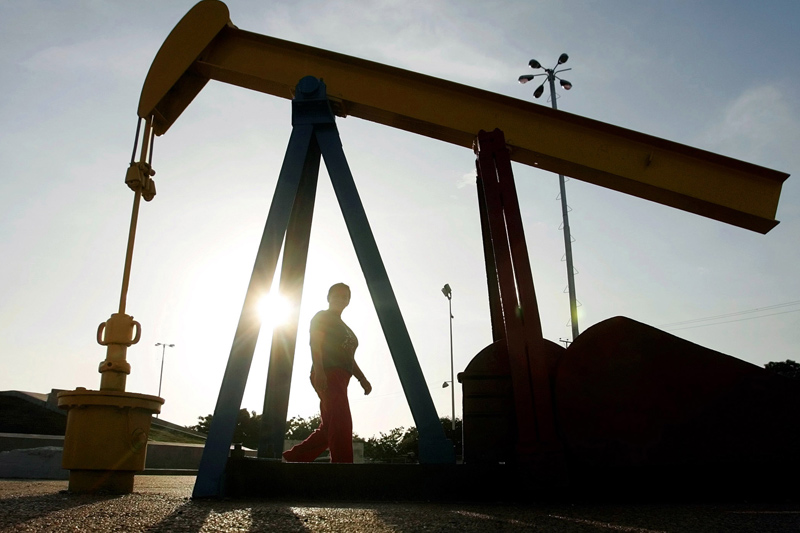Investing.com - Oil prices edged up on Friday morning in Asia with markets continuing to preempt the impact of U.S. crude sanctions against Iran that take effect in November.
Crude Oil WTI Futures for November delivery rose 0.69% to $74.83 a barrel on the New York Mercantile Exchange by 12:01AM ET (04:01 GMT), while London’s Intercontinental Exchange showed that Brent Oil Futures for December delivery gained 0.46% to $84.97 a barrel.
After reaching a nearly four-year high earlier in the week, oil prices dropped on rising U.S. crude inventories and news of a private deal between Saudi Arabia and Russia to raise oil output.
“Crude oil prices drifted lower [on Thursday] on combination of rising oil production in Saudi Arabia and Russia and a build-up of inventories in the U.S. That said, prices remained resilient as supply worries persist amid looming Iranian sanctions,” said ANZ on Friday.
Iranian official said on Thursday that the recent surge in oil prices offset the impact of the U.S. sanctions on the oil exporter. Mohammad Baqer Nobakht, head of Iran’s Planning and Budget Organization, said that the country’s oil revenues rose 16% in the past six months.
He said that U.S. President Donald Trump “thought he could shrink our country’s oil revenues by imposing sanctions on Iran’s oil sector and cutting its exports, but the rise in oil prices did not let that happen.”
Elsewhere, Russia’s Energy Minister Alexander Novak said on Thursday that oil prices can reach $100 a barrel in the near future due to the number of uncertainties, but he reckoned that this will not be good for the global economy, producers or customers.
He predicted that these uncertainties will remain in place for at least another month until the market is clear about the impact of the sanctions on Iran. In September, oil production in Russia hit a post-Soviet record high of 11.36 million bpd.
The head of the International Energy Agency, Fatih Birol on Thursday urged countries to ramp up output.
“Some countries have been making efforts to increase production but this is far from comforting the markets right now. My expectation and hope is that the producers are aware of the sensitive situation and make their best efforts.”
Oil prices increased recently despite Saudi Arabia’s oil output reaching a record high of 10.7 million barrels per day. The country’s energy minister, Khalid al-Falih said on Thursday in Moscow that the kingdom plans to invest #20 billion in the next few years to maintain and raise spare production capacity from shortfall in Iran.
